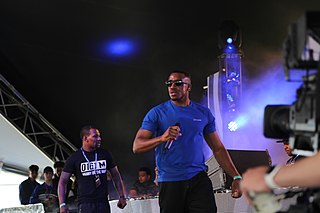A Quote by Umberto Eco
At a certain moment, I decided to write a story. I had no more small children to tell them stories.
Related Quotes
When we die, these are the stories still on our lips. The stories we’ll only tell strangers, someplace private in the padded cell of midnight. These important stories, we rehearse them for years in our head but never tell. These stories are ghosts, bringing people back from the dead. Just for a moment. For a visit. Every story is a ghost.
I honestly would tell anyone young to start looking at stories and learning story, because I think that’s the next step after people go, ‘OK, I’ve had enough of that improvisation, I’ve had enough of those short comedy bits. Tell me a story, tell me a more complex story, something that lasts and maybe has a little more meaning to it.’ Don’t ever look at what’s happening now; look at what’s coming next.
Some stories, she’d say, the more you tell them, the faster you use them up. Those kind, the drama burns off, and every version, they sound more silly and flat. The other kind of story, it uses you up. The more you tell it, the stronger it gets. Those kind of stories only remind you how stupid you were. Are. Will always be.
A lot of my family weren't present when I was young, so I was getting a lot of stories told to me about them. Certain members of family had reputations because they were involved in crime and stuff like that. Then, when I was out on the streets, I'd be hearing more stories about them. So I think my whole upbringing was just heavily story-oriented.
I found two true stories. One was in 2003. One was the beginning of 2004. I decided to meld them. Richard Davis' story which is the largest portion of this, a lot of the events are exactly as you saw, exactly what happened and the locations. Exactly as it was said with the chicken house and the strip club. Richard's parents were on the set and they'll tell you that the story is different than their son's. I was very concerned because I called them to say, 'You understand I'm fictionalizing this story?
I believe that if a child has a feel for writing and wants to write, there is an audience. Children should just dive in and go at it. I would encourage children to write about themselves and things that are happening to them. It is a lot easier and they know the subject better if they use something out of their everyday lives as an inspiration. Read stories, listen to stories, to develop an understanding of what stories are all about.




































